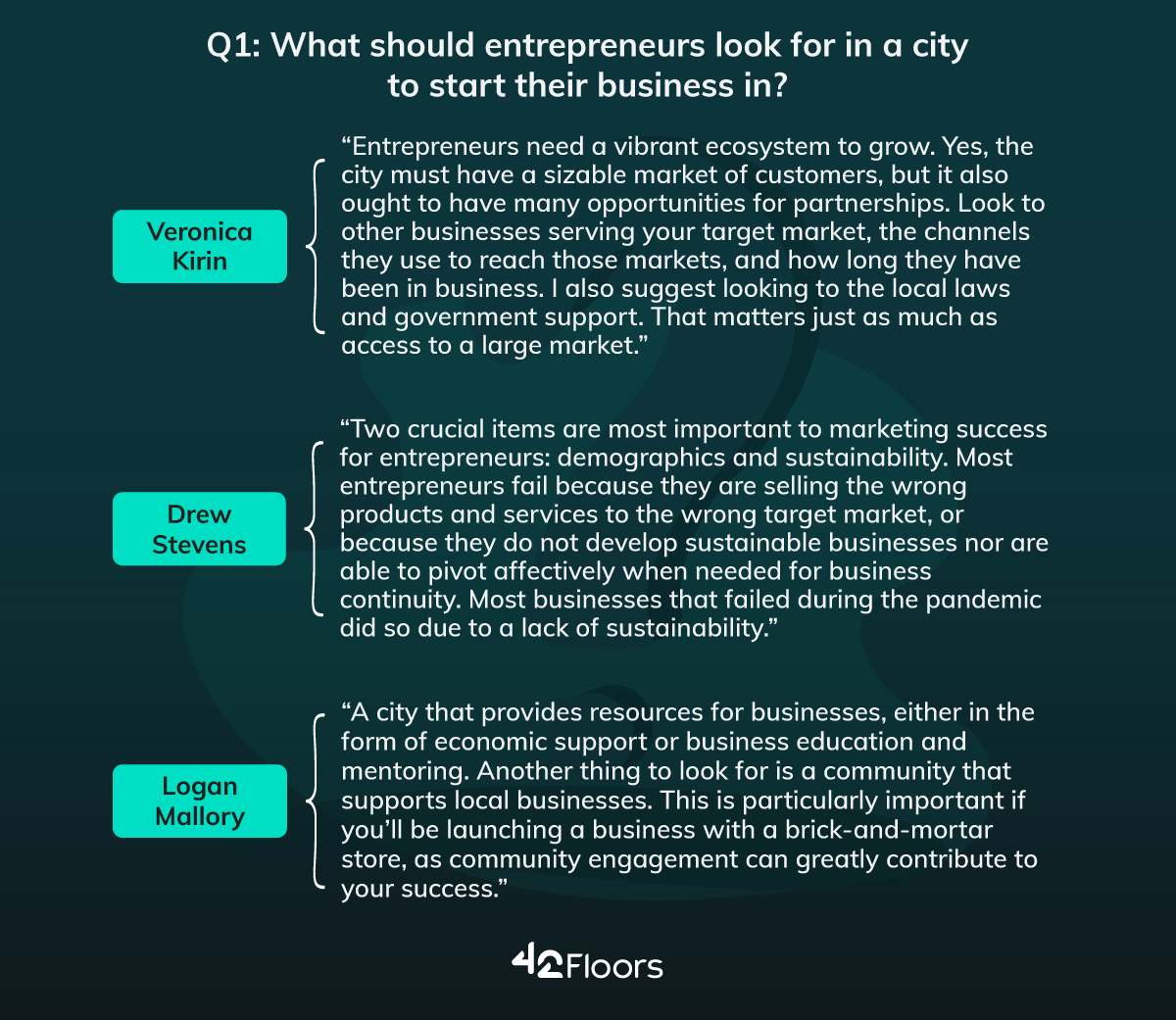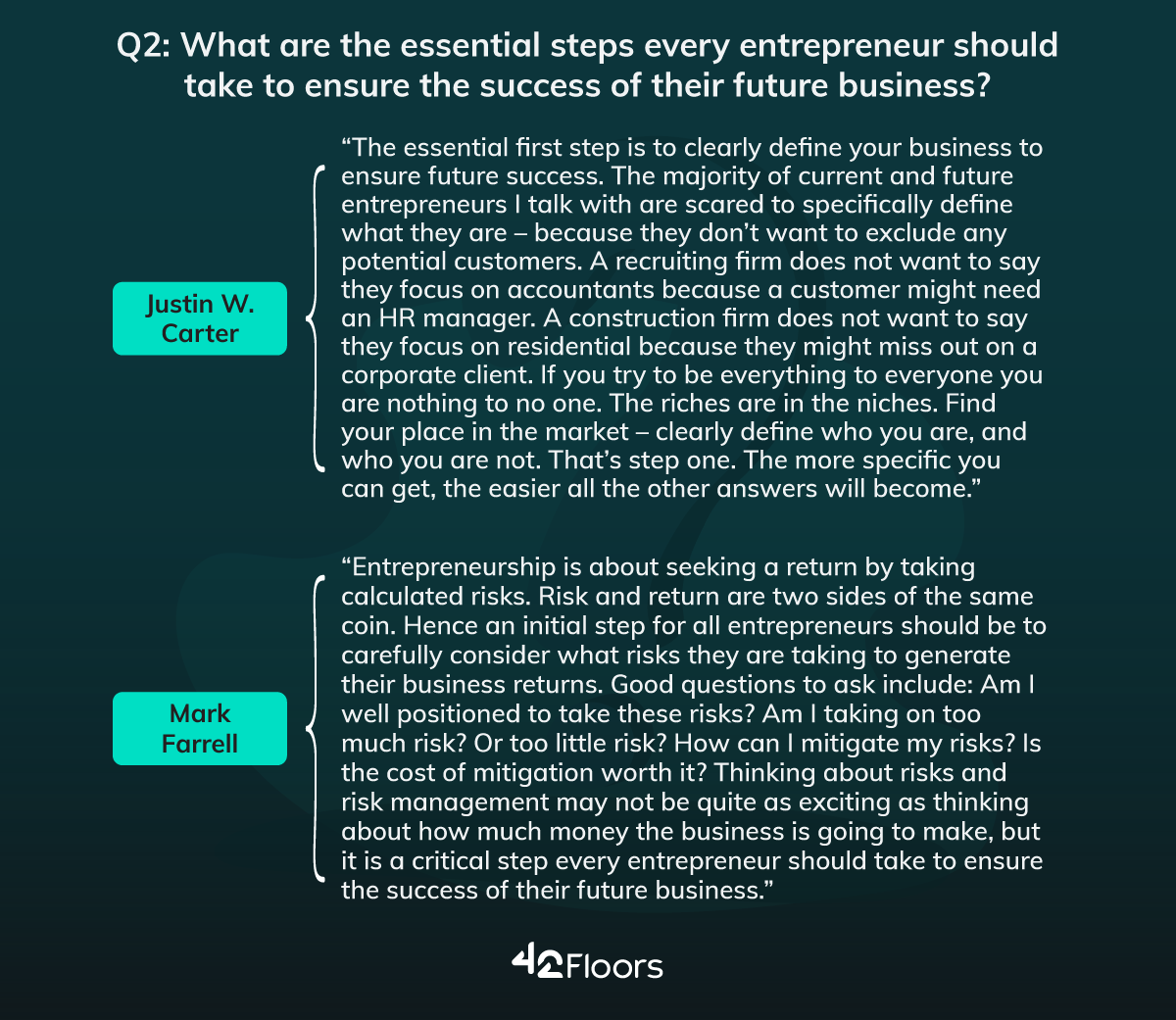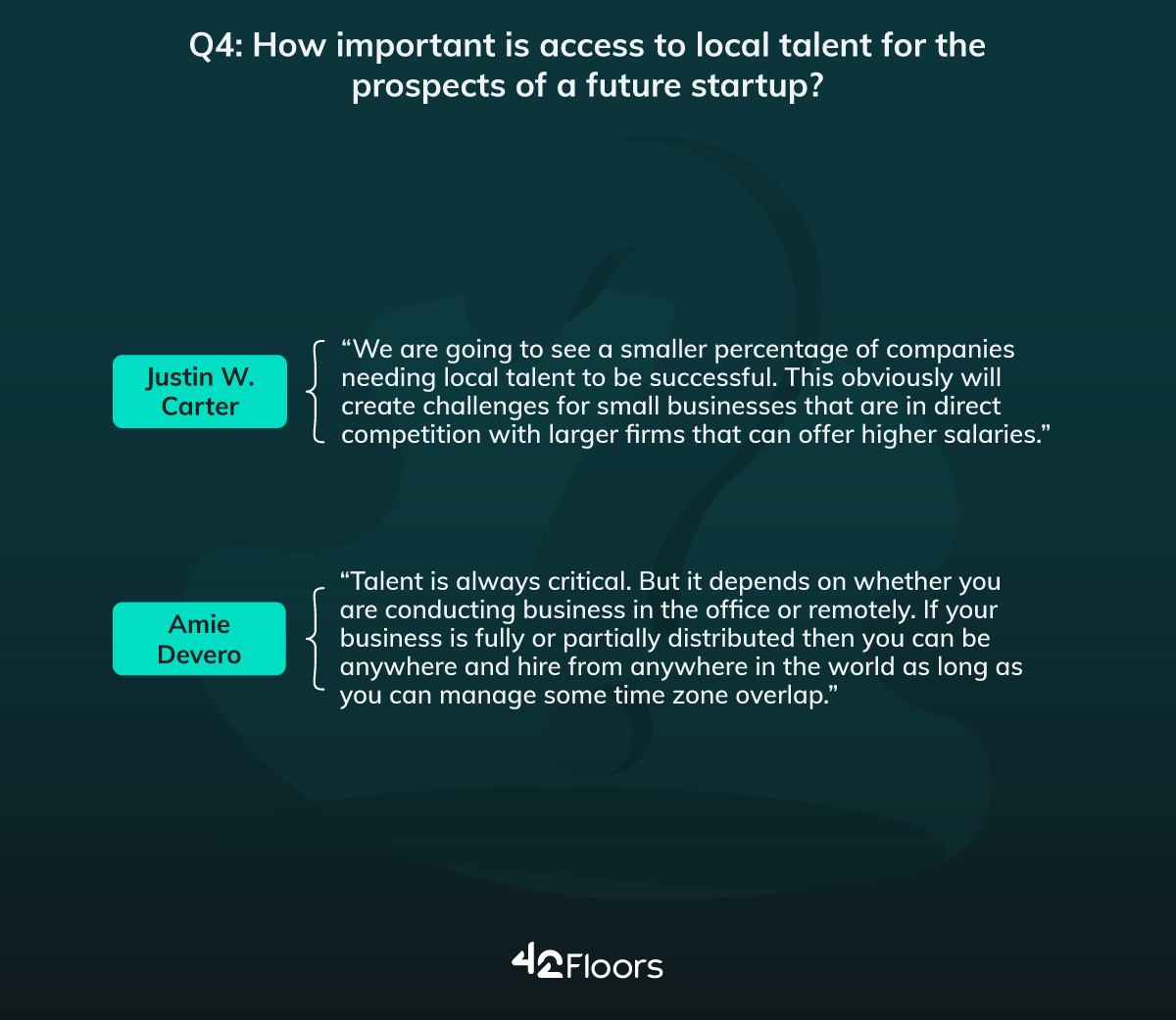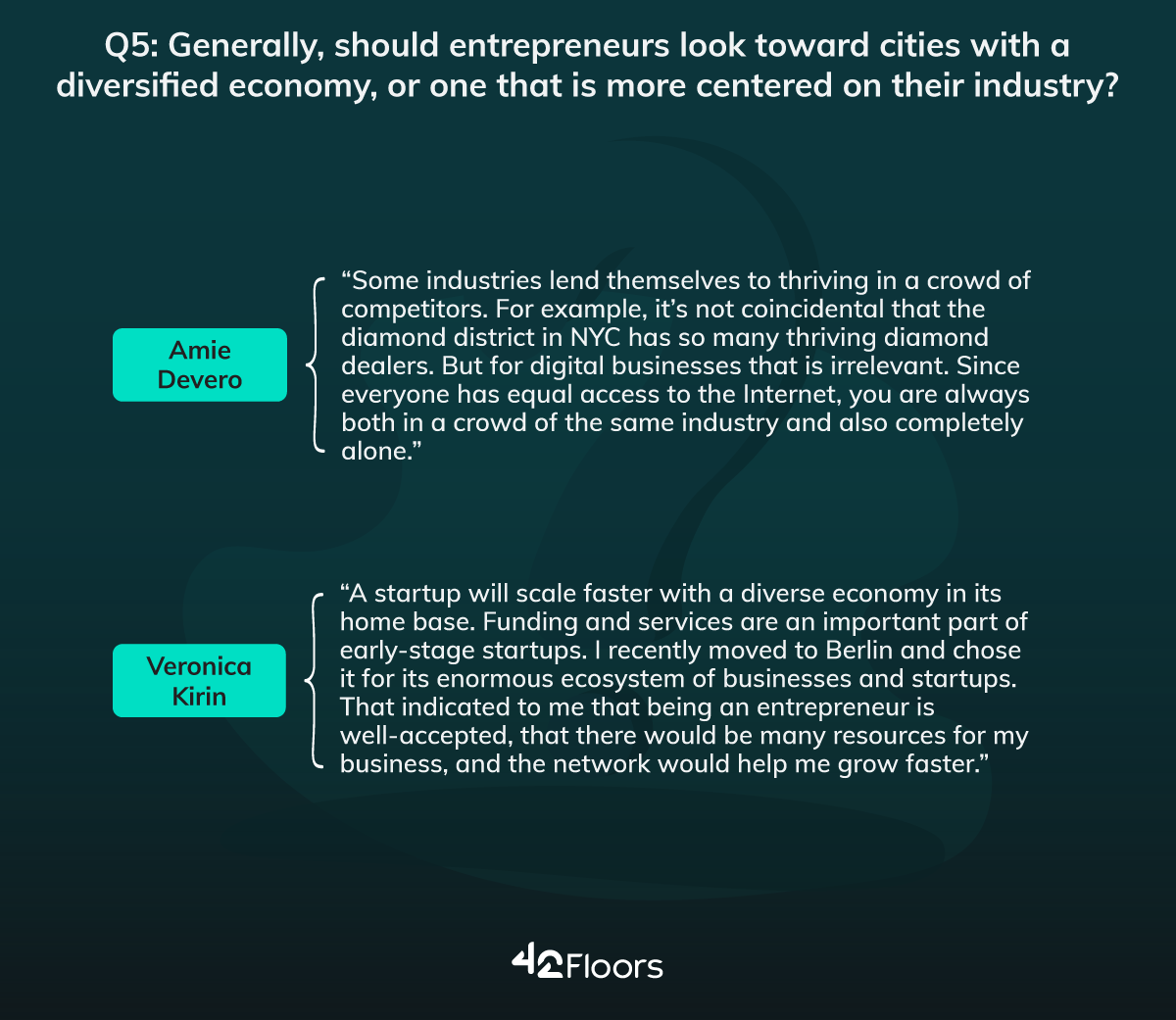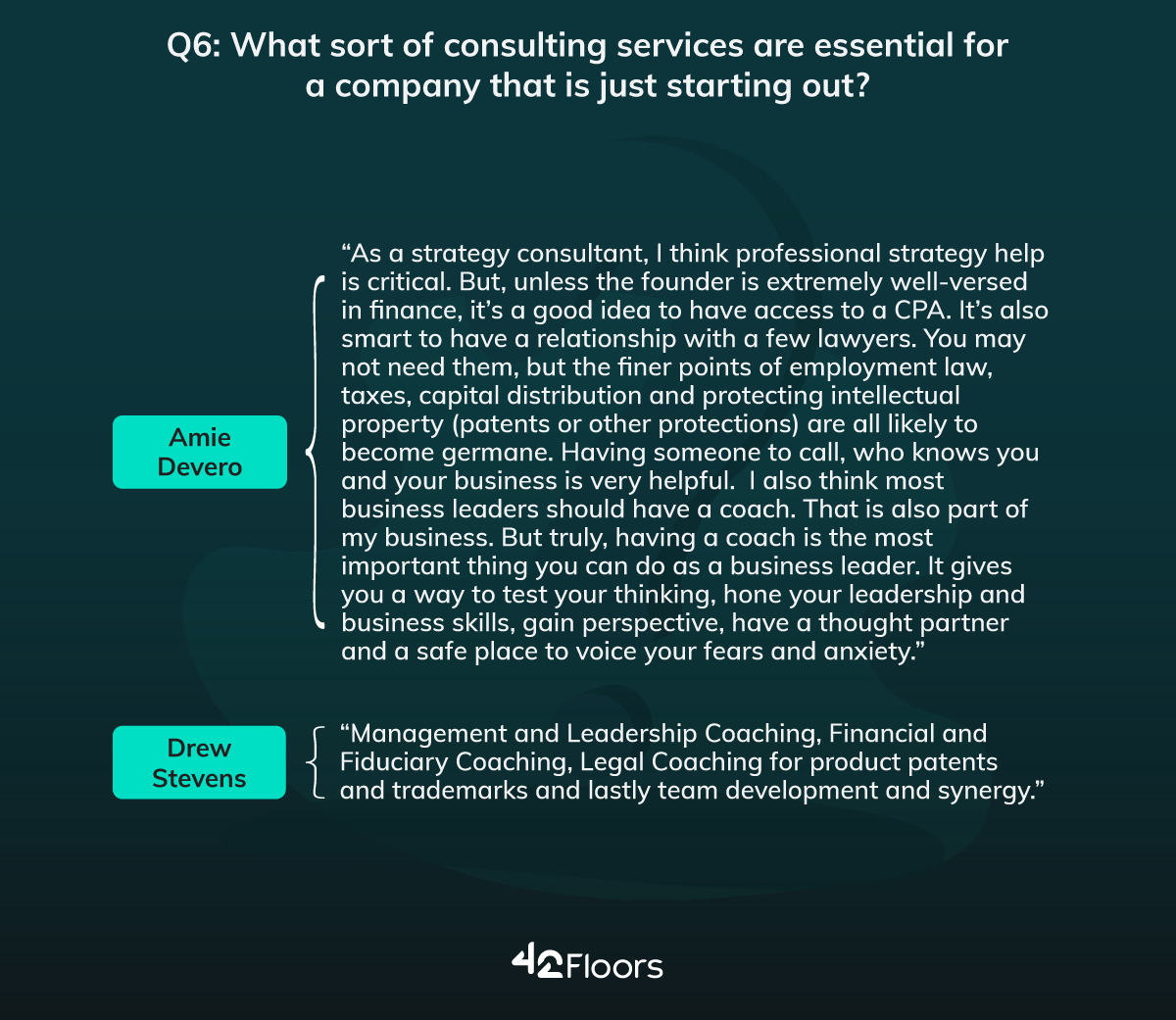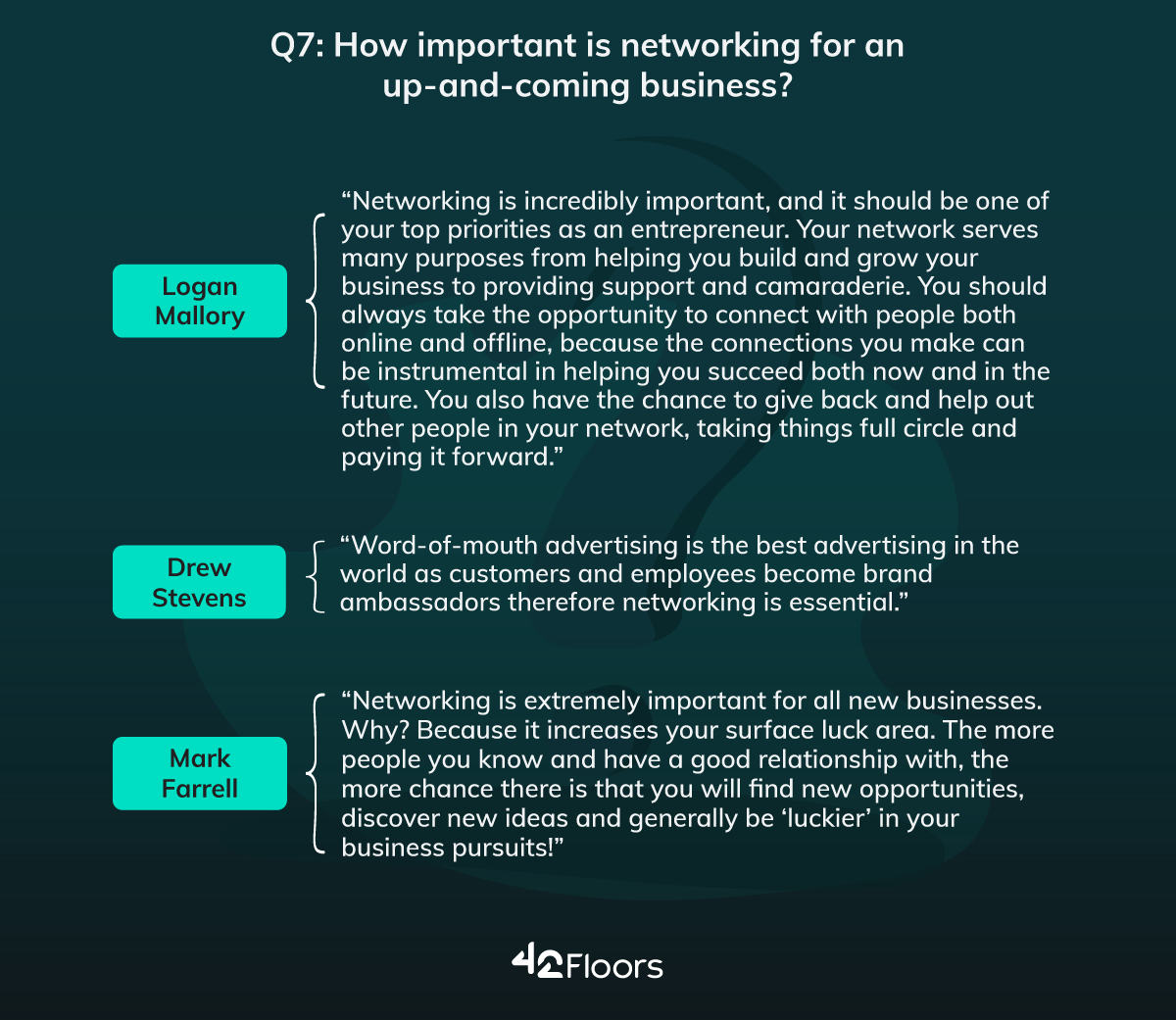Key Takeaways:
- Las Vegas earns the title of best place to start a business thanks to its business ecosystem and ample networking opportunities
- Boulder, Colo., came in second with a large number of startup-oriented companies and coworking spaces
- Texas claims three out of the top 10 best places to start a business with Austin at #3, Dallas at #8 and Houston at #9
- Four North Carolina metros and four from Florida named among the 20 best for new companies
Michael Dell, chairman and CEO of Dell, famously said, “Ideas are commodity. Execution of them is not.”
Every new business is a new idea put into practice. But, aside from finding a niche and having the right funding, location also plays a major role in turning a dream into profit. With this in mind, 42Floors set out to rank the best places to start a business in the U.S. Specifically, we sought to determine which metros offered a mix of opportunity and affordability.
Starting out in a business-friendly environment, being able to afford a small office, or even having access to the right consulting services and networking opportunities can all contribute to your new business’s chances for success. We took all of this into account and more in the following ranking:
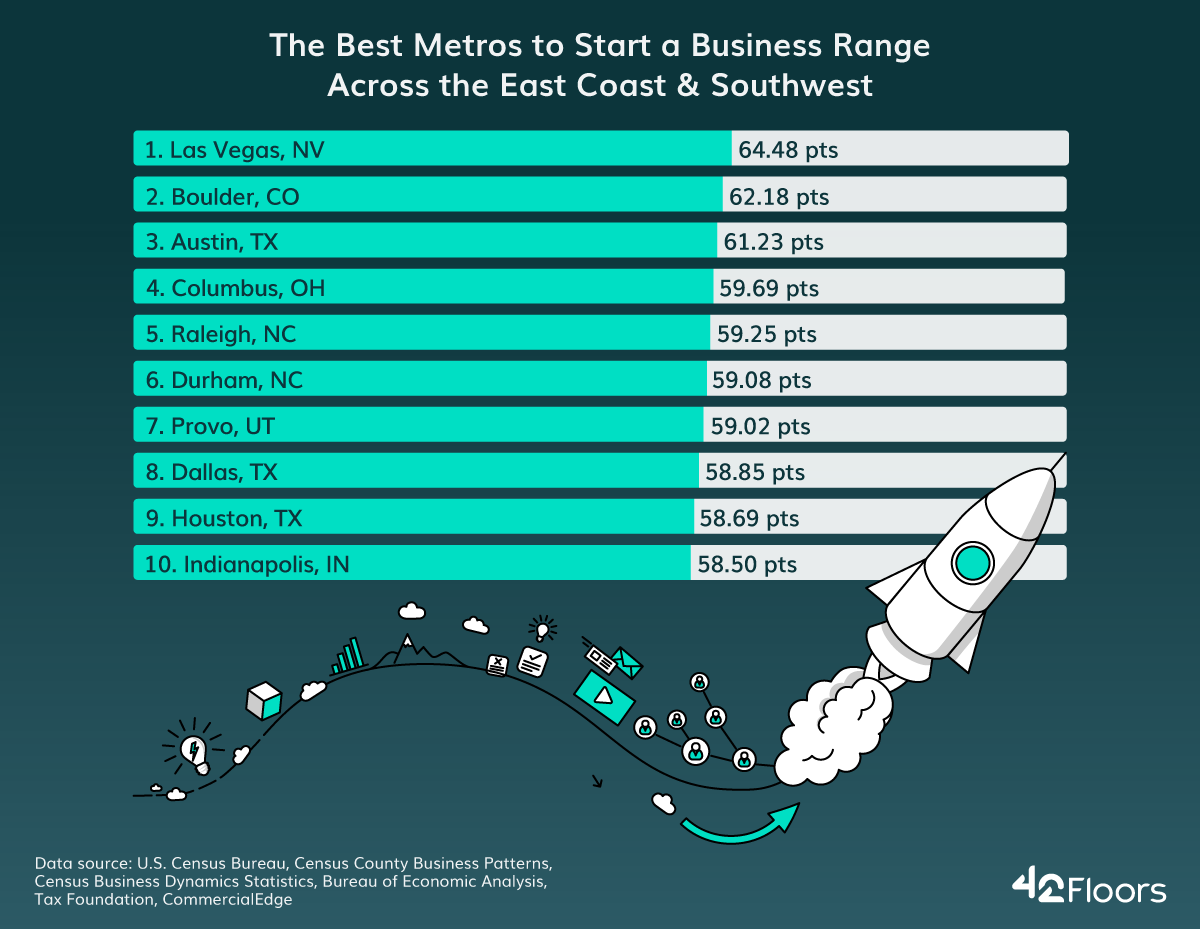
Las Vegas Steals Spotlight to Become Best Place to Start a Business in the U.S.
After ample revitalization efforts and a series of business-friendly policies — including significant investment in industries including aerospace, renewable energy and information technology — Las Vegas now stands as one of the prime innovation hubs in the desert states. As a result, new businesses are growing in significance in the metro’s economy, which has come a long way since its roots as an entertainment one-trick pony.
Notably, Las Vegas reached the first spot on the list of best places to start a business without having the best performance in any of our metrics, with the exception of corporate income tax. For this metric, it was tied at 0% with six other metros. Instead, as expected, Vegas proved that it has something for everyone.
First, Sin City has a large percentage of companies that were established one to five years ago (43%), proving its status as a launch pad for young companies. Another benefit for new companies is the fact that there are 3.3 coworking spaces per 100,000 Vegas residents — which, in conjunction with the metro’s tradition as the mecca of conventions, will certainly provide any entrepreneur with ample opportunities for networking, headhunting and courting of clients. Its other strong suits include relatively low labor costs at just more than $40,000 per employee per year, on average. The bottom line is that Vegas’ status as an oasis for turning business ideas into reality is as clear as a neon sign.
Boulder, Colo., Continues its Rise as a Magnet for New Businesses With Startup-Oriented Companies & Coworking Spaces as Strong Suits
In an interview for Crunchbase, Seth Levine — a founding partner of Colorado-based investment firm Foundry Group — claimed that 2010 was the approximate tipping point when a population influx toward Colorado began in earnest, thereby supplying the state’s burgeoning tech industry with fresh talent. Accordingly, Boulder, Colo. — a rising hub for entrepreneurs in a multitude of fields — was one of the main beneficiaries of this trend, as well as the runner-up on our list of best places to start a business.
Specifically, Boulder had the largest share (15.5%) of companies catering to new businesses, such as consulting firms; law and accounting firms; or advertising agencies. And, because these types of companies make up a considerable portion of Boulder’s business ecosystem, entrepreneurs have ample access to expert opinions and funding to help them launch successfully.
In the same vein, Boulder had nearly 6.5 coworking spaces per 100,000 residents — the most among all analyzed metros. That means that solopreneurs and other innovators here have access to office amenities on an as-need basis, as well the opportunity to rub shoulders with other professionals in their field. What’s more, Boulder also boasted a regional price parity close to the national average.
Texas Scores 3 of 10 Most Startup-Friendly Metros, Austin Leads the Way
With 43% of its metro’s companies established within the last one to five years, Austin, Texas, has cemented itself as the epicenter of startup activity in Texas. The city also had the third-lowest establishment exit rate, denoting a higher degree of new business survivability than other places.
Moreover, companies setting up here also had great access to consulting and other services necessary for a company’s first steps. And, Austin coworking spaces were also among the most innovative and accessible in the nation.
Also in the Lone Star State, Dallas and Houston also made the top 10 list of best places to start a business at #8 and #9, respectively. Notably, Dallas had a slightly lower establishment exit rate and a higher density of coworking spaces. Additionally, a Dallas office that’s large enough for five employees would cost $28,400, on average — $1,300 cheaper per year than its equivalent in Houston. Meanwhile, Space City distinguished itself with a cost of living on par with the national average (and 5% lower than that of Dallas). What’s more, average labor costs per employee in Houston rested at $45,750 — the lowest among the three.
While not making the top 10, San Antonio still had a good showing with potential for entrepreneurs, landing at #19 on our list.
As you might expect, each metro in the Texas trio offered a different context in which different businesses could thrive. For this reason, entrepreneurs will need to weigh the importance of affordability and opportunity for their respective business ideas.
4 North Carolina Metros, 4 Florida Metros Among 20 Best Places to Start a Business in U.S.
Two neighboring metro areas situated in one of the most robust areas in the U.S. for biotech and high-tech innovation — the Research Triangle — fittingly made the list in consecutive spots. At #5, Raleigh, N.C., boasts a larger percentage of young businesses with 37%.
Similarly, Durham, N.C., reached #6 due to its higher concentration of coworking spaces relative to its population and slightly better affordability. Other than that, both cities in the Triangle were almost evenly matched. Claiming one of the most educated populations in the U.S. — as well as a net inflow of people from other areas — the Research Triangle is promising for talented professionals, prospective entrepreneurs and investors alike.
Notably, Winston-Salem and Greensboro also made the top 20 list at #16 and #17, respectively, meaning that North Carolina also recorded four of the 20 best places to start a business in the nation.
Florida also recorded four entries among the 20 best metros for new businesses, though they all landed outside the top 10: Tallahassee at #11, Orlando at #13, Tampa at #14 and Cape Coral at #15.
Provo Home to Largest Share of Startups, Winston-Salem Stands Out as Affordable Option for Companies Starting Out
In the previous section, we highlighted the top 10 best cities for new businesses based on a balance of affordability and opportunity. However, in the business world, it’s all about seizing the right niche. Consequently, some entrepreneurs could establish themselves in metros that are remarkable in one particular area. Here are the places that showed the best results in each of our indicators, regardless of the spot they reached on the final list.
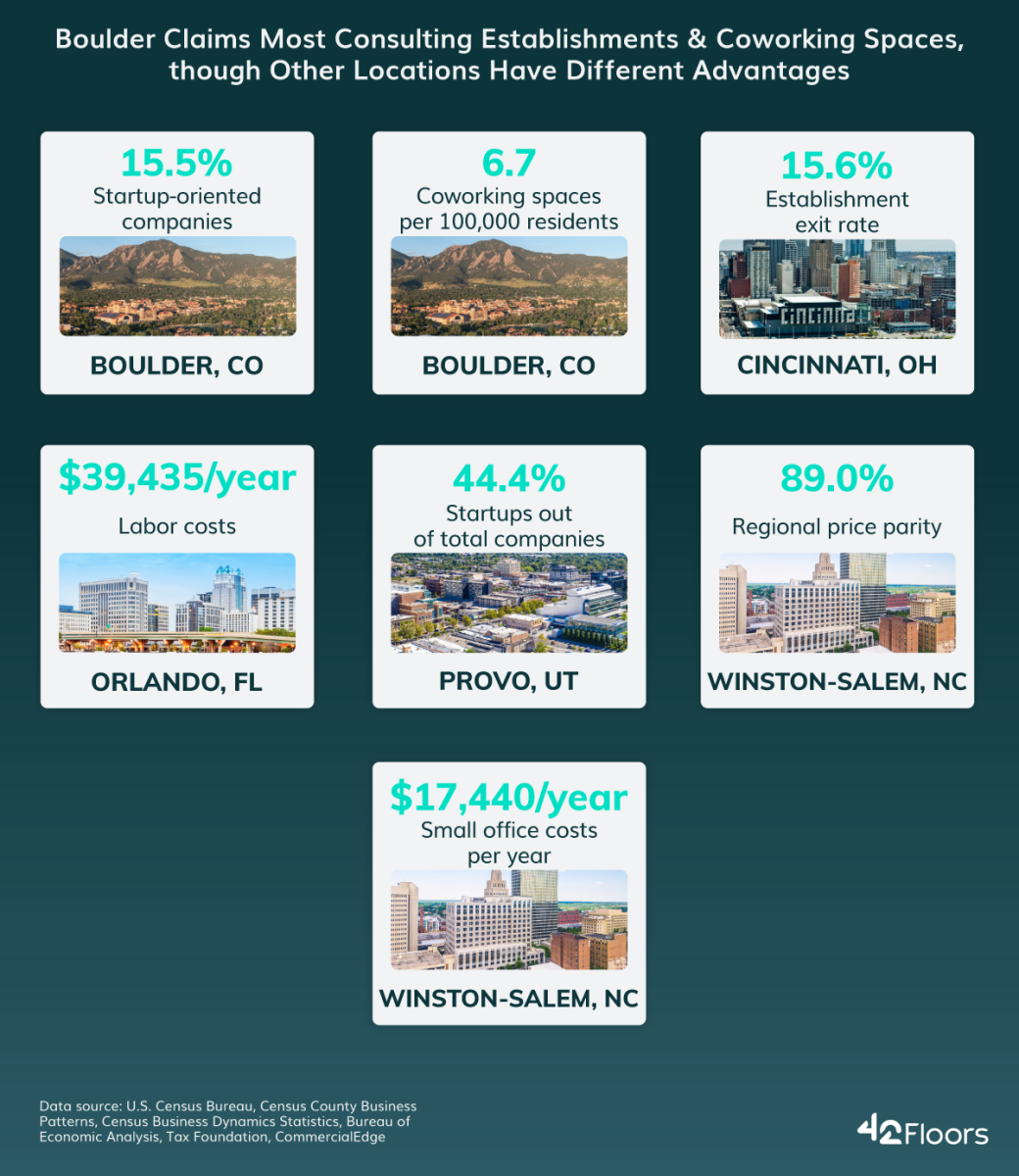
Granted, some cities proved that they had the right conditions for some categories of startups, despite not scoring as highly on the overall list. For example, Provo, Utah, was the metro with the largest share of young companies among its businesses. This not only demonstrates the importance of fresh ideas for the local economy, but also highlights that companies starting out here are joining a vibrant and diverse ecosystem.
Similarly, Orlando, Fla., featured the lowest labor costs per year with $39,435 per employee, while also recording a high degree of educational attainment. In other words, new companies that rely on local talent can benefit twice over by operating here.
Still, if it’s the safety of affordability that you value when starting a business, then Winston-Salem, N.C., is the stand-out metro. This metro broke into the top 20 thanks to its regional price parity — which was 11% cheaper than the national average — in addition to claiming the lowest cost to rent an office large enough for five employees. But, while affordability was the city’s strongest suit, it was by no means its only upside: Winston-Salem is a burgeoning innovation hub that also benefits from the recent inflow of talent and investment into North Carolina. The context is similar in nearby Greensboro, which didn’t rank first in any indicator, but also stood out as an affordable option amid North Carolina’s startup surge that could favor companies in other industries, as well.
Besides these highlights in specific indicators, Boulder, Colo., had the largest share of startup-oriented companies, as well as the highest share of coworking spaces, as mentioned previously. And, another high-scoring entry — Cincinnati, Ohio — had the lowest establishment exit rate. This fact highlights the city as a potentially great place to start a business due to its better chances of business survival — and that’s on top of its other benefits, including the second-lowest office costs per year and a regional price parity that’s 6% below the national average.
Find out more about our panel of experts and their companies:
- Justin W. Carter, Assistant Professor for the University of North Alabama
- Drew Stevens, Professor of Business for Webster University
- Logan Mallory, VP at Motivosity
- Amie Devero, CEO of Beyond Better Strategy and Coaching
- Mark Farrell, CEO of ProActuary
- Veronica Kirin, leading business scaling coach
Coworking spaces can provide you with the flexibility and professionality you need when trying to get a business off the ground. With access to office amenities, conferencing and a potentially impressive address available on an as-need basis, you can rent a hotdesk or a private office in one of the most vibrant coworking markets in the U.S. and interact with other people operating in your field.
Methodology
For this study, we ranked all U.S. metro areas with at least 300,000 residents based on their potential for prospective entrepreneurs and highlighted the 20 best-scoring metros. Only metros with complete data in all indicators were included in our study.
Points were awarded for each indicator. Points ranged from zero for the worst-scoring metro to the maximum for the best-scoring indicator. Points were distributed as follows:
- Up to 15 points for the percentage of consulting firms; law and accounting offices; financing organizations; portfolio management; administrative services; and other startup-oriented companies out of the total companies in the metro as of 2020. Data source: U.S. Census Bureau.
- Up to 15 points for the number of coworking spaces per 100,000 residents. Data source: CommercialEdge.
- Up to 15 points (indirect indicator) for the regional price parity of a metro in 2020. Regional price parity is expressed as a percentage of the average national price levels. For example, if the regional price parity of metro A is 110 and the regional price parity of metro B is 85, then metro A is 10% more expensive than the national average and metro B is 15% cheaper than the national average. Data source: Bureau of Economic Analysis (BEA).
- Up to 15 points (indirect indicator) for a metro’s establishment exit rate, which denotes the percentage of companies that were established between one and five years ago and that also ceased operations during the course of a year. Data source: U.S. Census Bureau.
- Up to 15 points for a metro’s share of startup companies of the total as of 2020. Startups were defined as companies established less than five years ago. Data source: U.S. Census Bureau.
- Up to 10 points (indirect indicator) for average labor costs per employee per year in a metro in 2021. Data source: U.S. Census Bureau.
- Up to 10 points (indirect indicator) for the combined corporate tax at the state level and average local sale tax levels. Data source: Tax Foundation.
- Up to 5 points for the average cost to rent a 1,000-square-foot office for a year in the metro. A 1,000-square-foot office was considered to be the average office space need for a startup company with five employees. Data source: CommercialEdge.



